A Distant Home | Un Hogar Lejano
What is it we think of when we think of home? Is it a house, a structure? Is it your family or community? Is it a geographical place—the family farm, the neighborhood block? Or is it a memory, the scent of honeysuckle coming in an open window, the taste of your grandmother’s biscuits? The thing is, it’s usually not just one thing, or at least it’s not the same thing for everyone. And the meaning of home can get really complicated when home is not just one place, when home might mean constant moves, new work, new schools, making new friends. Or when it means leaving your home country, making a dangerous journey, unsure of when you will next see your family. When it means arriving to a strange new “home” miles away from any neighbors, surrounded just by fields, with no familiar objects or memories. What is home then? Is it the home you left, even though it may have been ten years ago? Is there a way to make a new home, no matter where you are? What do you bring with you, what do you hold onto, what do you make new?
In the summer of 2009, a group of twenty college students set out to find answers to these questions, working with migrant and seasonal farmworkers in North Carolina, South Carolina, Tennessee, Georgia, and Virginia. These students, from all across the United States and many of them from farmworker families themselves, had come to the Southeast to participate in the Student Action with Farmworkers (SAF) Into the Fields internship. They spent their summer placed with agencies that provide services and resources to over 5,000 farmworkers each year, assisting with legal aid, health outreach, migrant education programs, and community organizing. In addition to this work, students gathered oral histories and photographs of farmworkers around the meaning of home. SAF has a strong history of documentary work with farmworkers, going back as long as it has been in existence. We believe in the power of personal stories to inform, inspire, and open up a dialogue about the need for change.
The work selected in this photo essay includes stories of migration, of border crossings, of home being where your family is, of connecting to home through letters and through keeping up with traditions. Home may not be the same for us all but the need for a place to call home is universal.
Alberto
By SAF interns Ignacio Morales and Andres Ramos
“Well in my mind it was like 10 people in the back of the truck that was taking us, laying down, and in those curves, hearing how the tire was squeaking that we wouldn’t return and never to see my family again. And it’s very good luck, if you’re able to cross, and for a lot of people, bad luck for each one of them on their way, never to see their family again. That’s what’s most sad about it that you see . . . that you see and that you take in personally in life.”
Luis
By SAF interns Maria Mandujano and Jazmin Posas
Luis, the oldest of his siblings, came to the United States because of the opportunities his cousin described to him, but during his journey here, he questioned whether it was actually all worth it. Luis financially supports the education of two of his sisters and wants to return home next year if he is able. Luis misses his parents and his father’s business selling flowers. When he thinks of home, he thinks of flowers and the work that goes into planting, growing and selling them.
Noel
By SAF interns Rachel Mossey and Calyste Corrington
“I’m grateful for all the North has helped me with. It has its ups and downs. I know that it’s not perfect, but sometimes I feel sorry for the people here. They don’t have love, they don’t know how to have a spiritual life . . . The beadwork I do is a way for me to live at home away from my home. I sit under the tree stringing each bead onto the threads that my aunt made with her own hands; looking up into the same sky she might also be looking at, and creating a masterpiece that will be carried down from generation to generation.”
Henry
By SAF intern Rachel Wright Junio
Here in NC, Henry works as a farmworker and lives in a two-bedroom, one-bath trailer with seven other men and a family of three. The family has a young daughter who they call “princesita.” “She is the baby of the house and we take good care of her.” When I ask Henry if he has a home here he says, “No, because a home is a place where one is with their family . . . with their parents. This isn’t a home because we aren’t staying here all of our lives and we stay in many different places. In my country I have a home because that’s where my family is. That’s where everyone is. Everything is there in Guatemala.”
Carolina
By SAF interns Anna Walton and Rachel Wheat
Carolina feels that even though where she lives now is beautiful, it is not home to her because her whole family is not there with her. Everyone is friendly in the camp, Carolina describes, but she only has one real friend – an old man who she enjoys talking to, but who still cannot replace the value of a brother or sister.
Aureliano
By SAF interns Jessica Haywood and Marisela Martinez
Aureliano had to miss an important celebration in Mexico this year – the baptism of his eight year old granddaughter. Although he could not be there in person, he found a way to be present in spirit, by designing, hand cutting, and sending papel picado flags to be hung in the house at the celebration. These flags, traditionally part of any big celebration in Mexico, had special meaning because they were requested specifically by his granddaughter and sent to Mexico with a little piece of Aureliano’s heart included.
Teresa
By SAF intern Catherine Raymer
When asked about her home in Mexico, the first thing Teresa recalls is the famous church in her town which houses la Virgen de Juquila. Visitors travel from distant places to make a wish in the famous church that houses la Virgen. Work there is different; everyone owns and works on their own piece of land, not on someone else’s. While she writes and sends pictures to her family in Mexico, Teresa hasn’t seen them in six years.
Karen
By SAF intern Koehler Briceño
When Karen was thirteen she met a boy who asked to marry her and together they left for the United States. Two years later, Karen, now pregnant, left her abusive husband to live with her mother in Indianapolis. Karen was unhappy living with her mother and later came to live with her older sister in Western NC. Karen worked at a local poultry plant for two months but then was fired after “spontaneously” organizing a strike against low wages and poor working conditions. To Karen, the apartment she has now is as close to home as anything she has ever had.


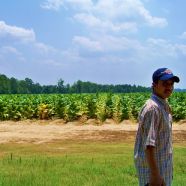






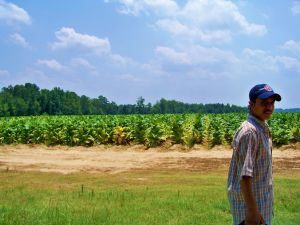
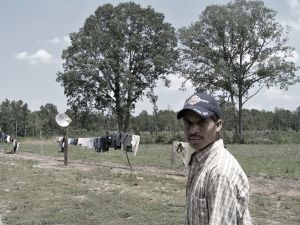
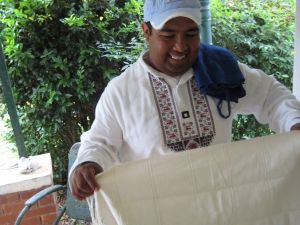
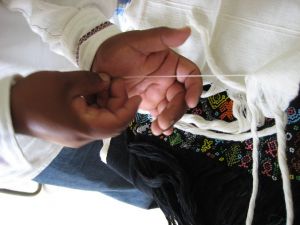
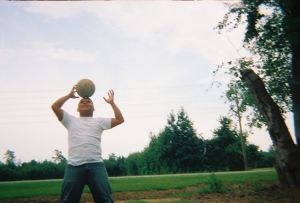
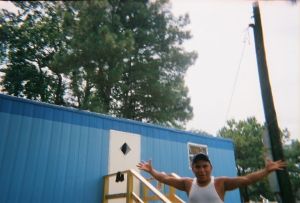
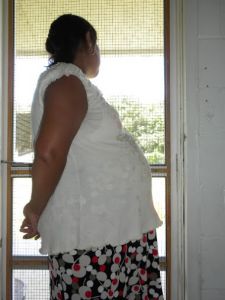
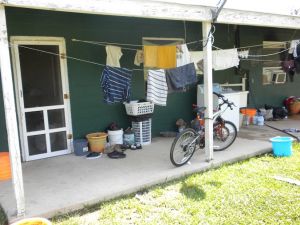
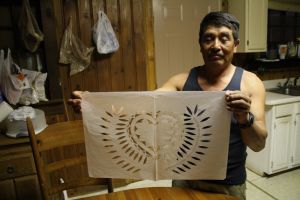
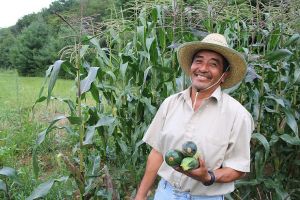
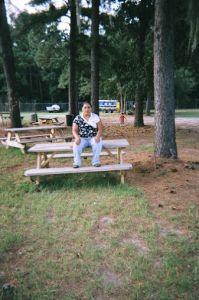
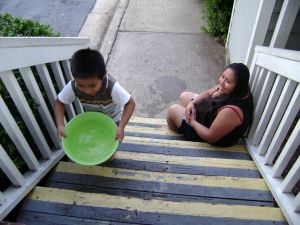
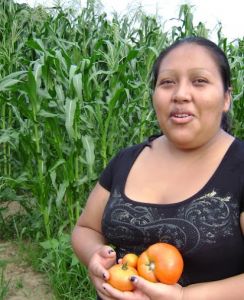
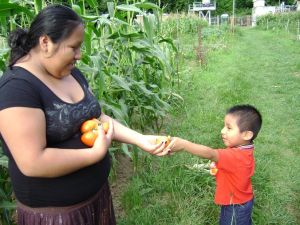
Wonderful article. I teach English & advocate for migrant workers so the vignettes presented rung true with me. Bookmarking your site. Using stories gleaned from conversations with migrant workers, I wrote & published a novel dedicated to migrant workers. Title: Another Day, Otro Día by Kathleen E. Suits-Smith. Website under development.